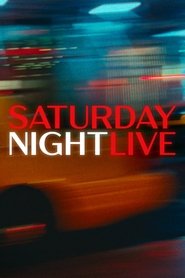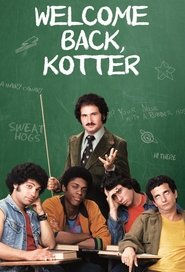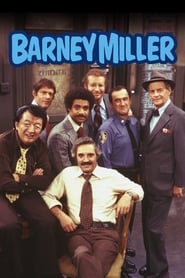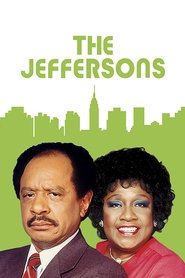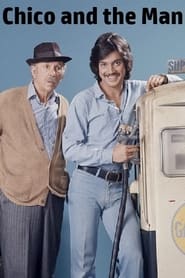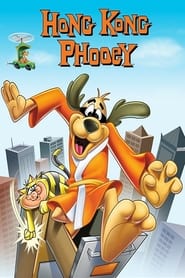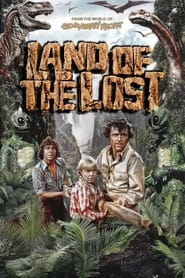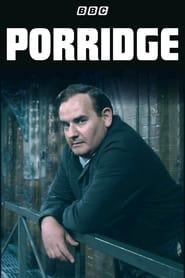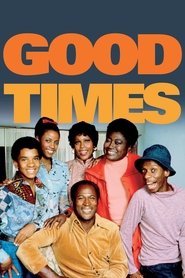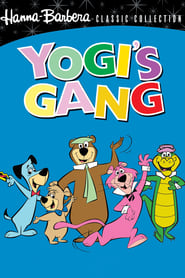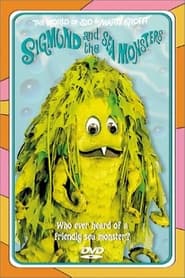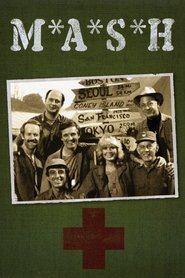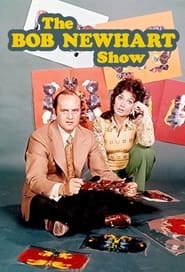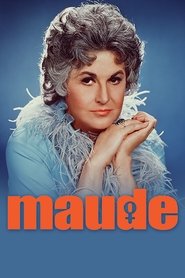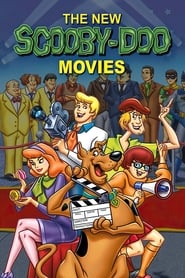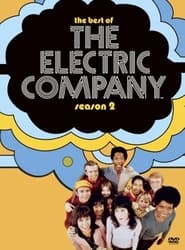New Comedy TV Series on Apple iTunes - Page 109
-
Saturday Night Live
1975
Saturday Night Live
1975
star 7A late-night live television sketch comedy and variety show created by Lorne Michaels. The show's comedy sketches, which parody contemporary culture and politics, are performed by a large and varying cast of repertory and newer cast members. Each episode is hosted by a celebrity guest, who usually delivers an opening monologue and performs in sketches with the cast, and features performances by a musical guest. -
Welcome Back, Kotter
1975
Welcome Back, Kotter
1975
star 7.2Welcome Back, Kotter is an American television sitcom starring Gabe Kaplan and featuring a young John Travolta. Videotaped in front of a live studio audience, it originally aired on the ABC network from September 9, 1975, to June 8, 1979. -
Barney Miller
1975
Barney Miller
1975
star 7.3Barney Miller is an American situation comedy television series set in a New York City police station in Greenwich Village. The series originally was broadcast from January 23, 1975 to May 20, 1982 on ABC. It was created by Danny Arnold and Theodore J. Flicker. Noam Pitlik directed the majority of the episodes. -
The Jeffersons
1975
The Jeffersons
1975
star 7.3Sitcom following a successful African-American couple, George and Louise “Weezyö Jefferson as they “move on up” from working-class Queens to a ritzy Manhattan apartment. A spin-off of All in the Family. -
Chico and the Man
1974
Chico and the Man
1974
star 5.8Chico and the Man is an American sitcom which ran on NBC for four seasons, from September 13, 1974, to July 21, 1978. It stars Jack Albertson as Ed Brown, the cantankerous owner of a run down garage in an East Los Angeles barrio, and Freddie Prinze as Chico Rodriguez, an upbeat, optimistic Chicano young man who comes in looking for a job. It was the first U.S. television series set in a Mexican-American neighborhood. -
Hong Kong Phooey
1974
-
Land of the Lost
1974
Land of the Lost
1974
star 7.1Rick Marshall and his children Will and Holly are on a weekend expedition rafting down a river when an enormous earthquake diverts them to an eclectic alien world inhabited by dinosaurs, chimpanzee-like cavemen called Pakuni, and aggressive, humanoid lizard creatures called Sleestak. -
Porridge
1974
Porridge
1974
star 8.1Porridge is a British situation comedy broadcast on BBC1 from 1974 to 1977, running for three series, two Christmas specials and a feature film also titled Porridge. Written by Dick Clement and Ian La Frenais, it stars Ronnie Barker and Richard Beckinsale as two inmates at the fictional HMP Slade in Cumberland. "Doing porridge" is British slang for serving a prison sentence, porridge once being the traditional breakfast in UK prisons. The series was followed by a 1978 sequel, Going Straight, which established that Fletcher would not be going back to prison again. Porridge was voted number seven in a 2004 BBC poll of the 100 greatest British sitcoms. -
Good Times
1974
Good Times
1974
star 8Good Times is an American sitcom that originally aired from February 8, 1974, until August 1, 1979, on the CBS television network. It was created by Eric Monte and Mike Evans, and developed by Norman Lear, the series' primary executive producer. Good Times is a spin-off of Maude, which is itself a spin-off of All in the Family along with The Jeffersons. The series is set in Chicago. The first two seasons were taped at CBS Television City in Hollywood. In the fall of 1975, the show moved to Metromedia Square, where Norman Lear's own production company was housed. -
Yogi's Gang
1973
Yogi's Gang
1973
star 7Yogi's Gang is a 30-minute animated series and the second incarnation of Hanna-Barbera's Yogi Bear which aired 16 half-hour episodes on ABC from September 8, 1973, to December 29, 1973. The show began as Yogi's Ark Lark, a special TV movie on The ABC Saturday Superstar Movie in 1972. Fifteen original episodes were produced for broadcast on ABC, with the hour-long Yogi's Ark Lark thrown in as a split-in-half two-parter. After a successful run on Saturday mornings, Yogi Gang returned in 1977 as a segment on the syndicated weekday series, Fred Flintstone and Friends. In the late 1980s, repeats were shown on USA Cartoon Express and later resurfaced on Nickelodeon, Cartoon Network and Boomerang. -
Sigmund and the Sea Monsters
1973
star 5.4Sigmund and the Sea Monsters was an American children's television series that ran from 1973 to 1975, produced by Sid and Marty Krofft and aired on Saturday mornings. There were 29 episodes spanning two seasons. -
Black and Blue
1973
Black and Blue
1973
star 6Black and Blue was a BBC TV comedy-drama series, first broadcast in 1973. The show consisted of six 50–60 minutes episodes, each a separate self-contained playlet. The only connection was the Black and Blue humour theme. The first episode was broadcast on 14 August 1973, with the finale on 18 September 1973. The first, Secrets, was wiped, only surviving thanks to a domestic videotape copy made from the master by producer Mark Shivas. -
The Essential Lectures of Alan Watts
1972
star 10The Essential Lectures of Alan Watts video series was recorded in 1971 above Muir Woods, California, and in 1972 aboard the ferryboat the SS Vallejo in Sausalito. Produced by his son Mark and directed by long-time archivist Henry Jacobs, the series explores core philosophical themes that spawned over Watts' career. -
M*A*S*H
1972
M*A*S*H
1972
star 7.9The 4077th Mobile Army Surgical Hospital is stuck in the middle of the Korean war. With little help from the circumstances they find themselves in, they are forced to make their own fun. Fond of practical jokes and revenge, the doctors, nurses, administrators, and soldiers often find ways of making wartime life bearable. -
The Bob Newhart Show
1972
The Bob Newhart Show
1972
star 7.5The Bob Newhart Show is an American situation comedy produced by MTM Enterprises, which aired 142 original episodes on CBS from September 16, 1972, to April 1, 1978. Comedian Bob Newhart portrays a psychologist having to deal with his patients and fellow office workers. The show was filmed before a live audience. -
Wait Till Your Father Gets Home
1972
star 5.7Wait Till Your Father Gets Home chronicles the lives of the Boyles, your average 1970's American family. Harry Boyle, the father, owns a restaurant supply company. His wife Irma portrays the typical housewife, with an occasional independent flare. Harry and Irma have three children: Chet, Alice, and Jamie. Chet, who is 22, is a college dropout, who spends most of his time sleeping. Alice is a rather robust 16-year-old, who teams up with her mother, to display the independence of women, in the 70's. Jamie is the Capitalist of the family, even though he is only 9. The show is set in the suburbs of Los Angeles, on Elm Street, to be precise. During the 1973 season, the show was host to many celebrity voices, including: Don Knotts, Phyllis Diller, Bea Arthur and many more (many of these guests were carried over from The New Scooby-Doo Movies, which were recored at this time). -
Maude
1972
Maude
1972
star 6.7Well-educated and upper middle class, Maude Findlay is the archetypal feminist of her generation. She lives in suburban Tuckahoe, New York, with her fourth husband, Walter, their divorced daughter, Carol, and grandson Phillip. -
The New Scooby-Doo Movies
1972
star 7.7Aside from doubling the length of each episode, The New Scooby-Doo Movies differed from its predecessor in the addition of a rotating special guest star slot; each episode featured real-life celebrities or well known fictional characters joining the Mystery, Inc. gang in solving the mystery of the week. Some episodes, in particular the episodes guest-starring the characters from The Addams Family, Batman, and Jeannie, deviated from the established Scooby-Doo format of presenting criminals masquerading as supernatural beings by introducing real ghosts, witches, monsters, and other such characters into the plots. -
The Electric Company
1971
The Electric Company
1971
star 7.1The Electric Company is an educational American children's television series that was produced by the Children's Television Workshop for PBS in the United States. PBS broadcast 780 episodes over the course of its six seasons from October 25, 1971 to April 15, 1977. After it ceased production that year, the program continued in reruns from 1977 to 1985, the result of a decision made in 1975 to produce two final seasons for perpetual use. CTW produced the show at Teletape Studios Second Stage in Manhattan, the first home of Sesame Street. The Electric Company employed sketch comedy and other devices to provide an entertaining program to help elementary school children develop their grammar and reading skills. It was intended for children who had graduated from CTW's flagship program, Sesame Street. Appropriately, the humor was more mature than what was seen there. -
Help!... It's the Hair Bear Bunch!
1971
star 6.3The adventures of three fun-loving hippie bears, who always find a way to escape the Wonderland Zoo.
 Netflix
Netflix
 Amazon Prime Video
Amazon Prime Video
 Apple iTunes
Apple iTunes
 Apple TV Plus
Apple TV Plus
 Disney Plus
Disney Plus
 Google Play Movies
Google Play Movies
 Paramount Plus
Paramount Plus
 Hulu
Hulu
 HBO Max
HBO Max
 YouTube
YouTube
 fuboTV
fuboTV
 Peacock
Peacock
 Peacock Premium
Peacock Premium
 Amazon Video
Amazon Video
 The Roku Channel
The Roku Channel
 AMC+
AMC+
 Kocowa
Kocowa
 Hoopla
Hoopla
 The CW
The CW
 Vudu
Vudu
 Starz
Starz
 Showtime
Showtime
 PBS
PBS
 Pantaflix
Pantaflix
 FXNow
FXNow
 Tubi TV
Tubi TV
 Kanopy
Kanopy
 Comedy Central
Comedy Central
 Crunchyroll
Crunchyroll
 Microsoft Store
Microsoft Store
 Redbox
Redbox
 Sun Nxt
Sun Nxt
 ABC
ABC
 DIRECTV
DIRECTV
 Crackle
Crackle
 Fandor
Fandor
 Plex
Plex
